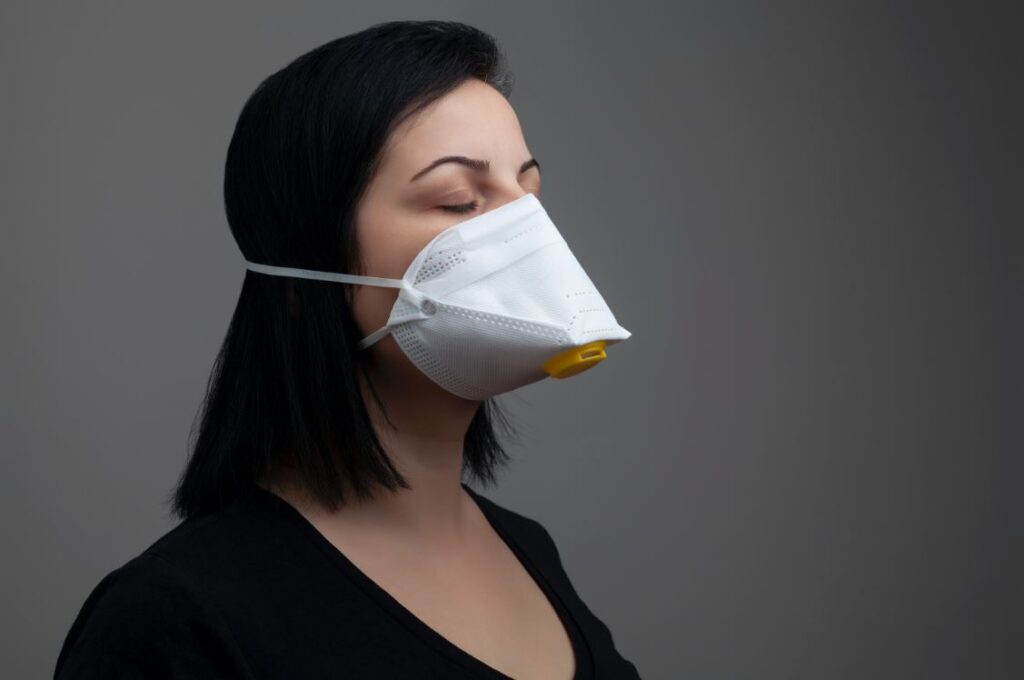
A new emphysema treatment breakthrough would certainly bring joy to patients. Chronic obstructive pulmonary disease (COPD) is a collection of diseases that cause damage to your lungs. Fortunately, there are a number of medical breakthroughs and treatments that can help people with COPD live better lives. An emphysema treatment breakthrough is definitely a good thing for the people suffering from the disease.
Emphysema treatment breakthrough
There’s a new option for patients with severe breathing difficulties caused by emphysema, a progressive lung condition that can be life-threatening if left untreated. The new device, called Zephyr Valves, received breakthrough device designation from the Food and Drug Administration in 2018 to help patients breathe easier without major surgery.
Breathing easier with emphysema is the first step to improving your quality of life.
In the UK, around three million people are affected by COPD. Its causes include cigarette smoking, air pollution and a family history of the condition.
The condition affects your alveoli and the tiny air sacs in your lungs that expand when you breathe. As you age, the walls of your alveoli begin to lose their shape. This leads to fewer, larger air sacs that can’t expand as well.
Currently, there are no approved biologic therapies for the disease. But a growing number of anti-inflammatory therapies are in clinical trials. Several are targeting the inflammatory cytokines IL-4, IL-13 and IL-5. In addition, a handful of biologics targeting RASC, a protein that promotes alveolar growth, are being studied for COPD.
Emphysema causes and treatments
Emphysema is caused by damage to the alveoli and tiny air sacs in your lungs that help oxygen and carbon dioxide get into your blood. In most cases, this damage occurs gradually over time. People who smoke are more likely to develop emphysema than people who do not smoke.
Smoking is the major cause of emphysema, though air pollution and other toxins can also contribute to the development of this disease. Genetic (inherited) factors, such as alpha 1-antitrypsin deficiency, can also increase the risk of developing emphysema.
The damage to the alveoli is not reversible, but there are many treatment options available to help slow the progression of emphysema. For example, quitting smoking can reduce the severity of a person’s symptoms and improve their quality of life.
Bronchodilators and steroidal medications can provide temporary relief of inflammation of the air sacs that cause shortness of breath. They also can relieve associated bacterial infections like pneumonia.
Pulmonary rehabilitation is a program of education and behavior changes that can reduce shortness of breath, improve exercise capacity, and improve overall health. It also focuses on a variety of healthy lifestyle choices, such as exercising regularly and eating a balanced diet.
Lung volume reduction surgery is a type of surgery in which some of the most damaged lung tissue is removed to allow healthy tissue to expand. This is sometimes used in severe emphysema patients to eliminate the need for supplemental oxygen.
In addition, a lung transplant may be an option in some cases. However, this surgical procedure has a high risk of infection and can be expensive.
False diagnosis of emphysema
About false diagnosis of emphysema

People with emphysema have lungs that are larger than normal. They may also have a barrel chest and feel like they’re struggling to breathe. They have a hard time getting air out of their lungs because the walls of their alveoli (air sacs) have been damaged.
The most common symptoms of emphysema are shortness of breath and wheezing. Often, these symptoms go away over time. Other signs include a cough that doesn’t go away and having trouble breathing during exercise.
Tests that your doctor might do to help diagnose emphysema are spirometry, lung function testing and high resolution computed tomography (CT). Spirometry measures how well your lungs inhale and exhale air.
A CT scan of your lungs shows if the air sacs in your lungs have been damaged or destroyed. It also shows how much oxygen is in your blood.
Your doctor will also check your heart. They might order an electrocardiogram or an ABG, which measures the amount of oxygen and carbon dioxide in your blood from an artery.
You might have other tests, too. These tests can help find out if you have other diseases such as asthma, lung cancer or heart disease that might be causing your shortness of breath.
Using the correct spirometry threshold can reduce overdiagnosis of COPD, whereas using the wrong spirometric criteria can increase the number of false positive diagnosis. This article reports the results of a study that investigated overdiagnosis in patients diagnosed with COPD using two different spirometry thresholds.
A possible simple cure for emphysema
If you have emphysema or COPD, your doctor may recommend several treatment options. These can relieve symptoms and prevent further damage to your lungs, so you can continue to breathe normally.
Smoking is the most common cause of emphysema, and it is also one of the most preventable causes. If you smoke, talk to your doctor about how to quit.
Your doctor can take a blood test to see if you have emphysema and if it is getting worse. The test, called a pulmonary function test, measures how much air your lungs can hold and the way it gets in and out of your lungs.
You may be given a medication to relax your bronchial muscles, which makes breathing easier. These medications are available in both powder and metered dose forms, and through nebulizer machines that convert liquid into aerosol.
Corticosteroids can reduce inflammation in the lungs
Corticosteroids reduce inflammation in the lungs and may help to ease shortness of breath. These are also available in inhaler form and as an oral steroid like prednisone.
If you have emphysema that isn’t responding to these treatments, your doctor might prescribe a medicine that has a combination of bronchodilators and steroids. These are available as inhalers, such as Advair, that combine salmeterol and fluticasone. Other treatments for emphysema include oxygen therapy, which delivers supplemental oxygen to your lungs to improve breathing. This type of treatment can be used at home or in a hospital, and some portable oxygen concentrators are designed for use when you’re sleeping.
If you liked the article, please donate!
